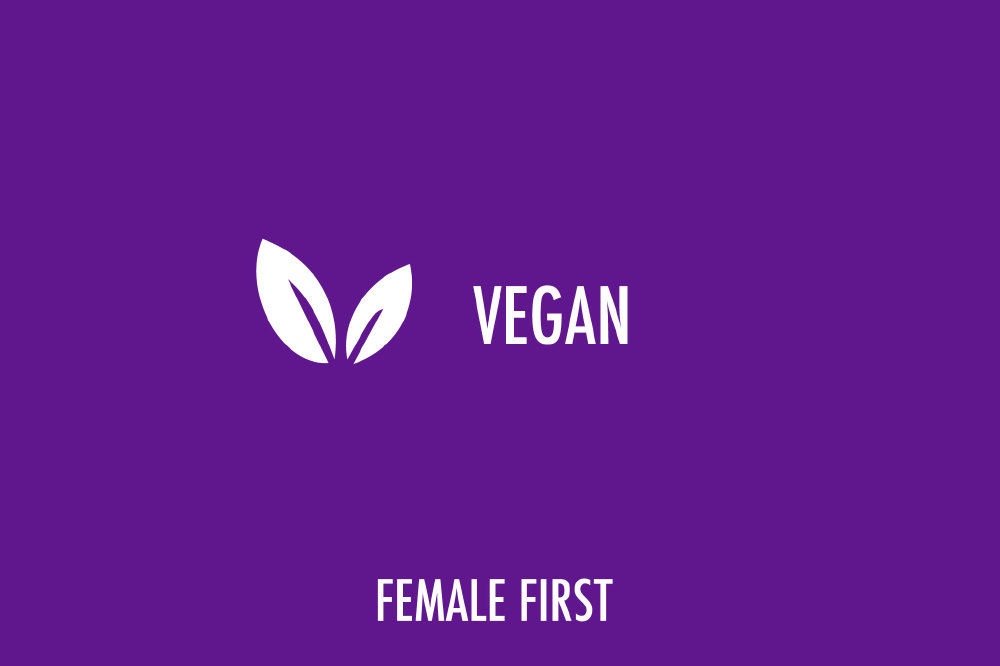Can you build major muscle on a meat-free diet? Yes you can!

Vegan on Female First
Peer into the fridge of any bodybuilder and you would probably expect to see the shelves ladened with steaks, eggs and an extensive array of animal-based products. Yet, it is actually a common misconception that consuming proteins derived from meat and building muscle are directly correlated - you can have a strong physique and survive on an entirely vegan or vegetarian diet.
Meat is not the driving factor in successfully building muscle, as long as you are consuming the right amount of protein for your needs it doesn't matter where that protein comes from.
Take a closer look around and you will find a wealth of athletes, bodybuilders and fitness enthusiasts that eat a varied and exciting vegan or vegetarian diet without any consequences to their progress. We're certainly not saying that you have to forget about meat, we're just suggesting that it's not the be all and end of a healthy diet.
As it's National Vegetarian Week, DW Fitness Clubs want to encourage vegetarians and vegans who want to progress with their fitness but aren't sure how to alter their diet so that they can achieve their goals. We have compiled 10 tips for vegan and vegetarian fitness enthusiasts to get the most out of their training.
Use protein powders
Protein powders can be a fantastic way to add extra calories and protein into your diet.
Opt for a soy or hemp protein powder and always check the labels to see if they are suitable for vegans, as many contain whey which is derived from cow's milk. To be clear, protein powders are a good way to supplement the protein you consume from elsewhere, but they should never act as a complete replacement.
Eat the right amount of calories
Vegetables, beans and pulses typically contain far fewer calories compared to animal-based products, and unfortunately this can mean that vegetarians and vegans are sometimes at risk of calorie deficiency which will cause weight loss rather than muscle increase. Try and keep track of how many calories you are consuming and increase your food intake if it isn't enough.
Swap tofu for tempeh
Tofu is the most popular soy product, but its counterpart tempeh is often overlooked. Just as delicious as tofu and containing 15g of protein and 3.5g of fibre in just half a cup, it makes a wonderful staple of a vegan diet. While tofu is still very healthy, tempeh is less processed and many people find it easier to add to dishes because of the firm, chewy texture.
Take in essential fatty acids
As you won't be getting essential fatty acids such as Omega 3 from fish, you must add flaxseed oils, avocado, nuts and other natural sources of fat to your diet. Fats are essential to give your body energy, hydrate your skin and maintain a healthy heart.
Opt for quinoa over rice
A single portion of quinoa contains a huge amount of protein and nutrients, and as it contains all nine amino acids it is actually a complete protein, unlike many meats and fishes. It has a similar texture to rice, so you should swap it in rice dishes for an extra nutritional boost.
Stick to natural unprocessed foods
It will be much more difficult to eat a rich and varied vegetarian or vegan diet if you are consuming processed foods. Transforming your diet by cooking with fresh produce will allow you to have more choice in your meals, allowing your body to get all the nutrients it needs.
Do quick, intense workouts
Endurance workouts mean that your protein intake will need to be increased, which can be challenging on a vegetarian or vegan diet. Aim for shorter but more intense sessions, which prevents muscle mass from being lost during the workout. DW Fitness Clubs has a range of high-intensity classes that are perfect for this, such as GT30, or circuit training.
Don't neglect your leafy greens
Spinach and broccoli are packed full of calcium and iron, which you may be lacking if you have removed meat and milk from your diet. Eat as much of those vegetables as you can, after all it certainly didn't do Popeye any harm!
You might want to also take an iron supplement if you feel like you don't have enough energy during your workouts.
Check your sports drinks and energy gels
Many people like to drink sports drinks to replace the electrolytes they lose during exercise, energy gels are also a good source of carbs which you require during longer exercise sessions and marathons. But be vigilant when checking labels, as many of these products can contain animal-based products such as gelatin.
Don't let others get you down
As a vegan or vegetarian embarking on a fitness journey you will probably be told multiple times that you need to eat meat to succeed, but you know that is not the case! Ignore people telling you otherwise, stay positive, keep calm and eat a delicious falafel burger. You can do this!
Tagged in Vegetarian Vegan

